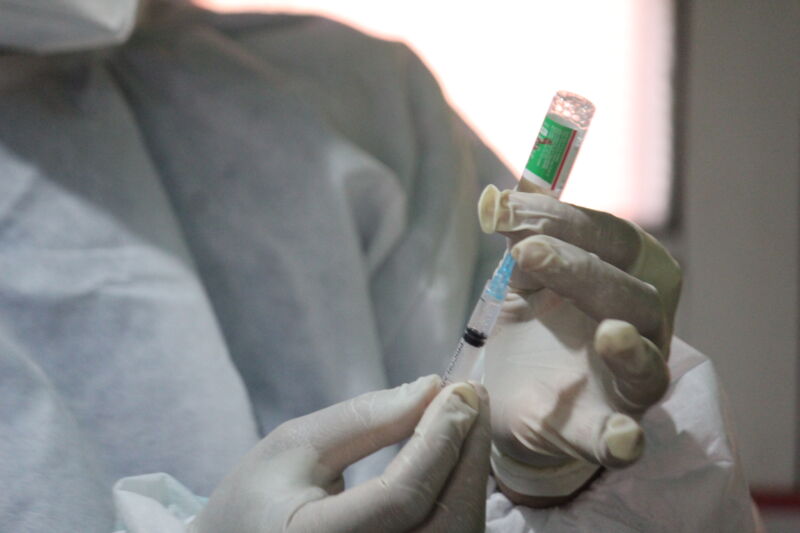
On Friday, Pfizer and BioNTech announced that their latest vaccine trial was showing some odd results in children within a specific age range. Children in the 2- to 5-year age group didn’t produce as strong of an antibody response to the vaccine as older and younger children did. As a result, the trial is being modified to include a third dose of vaccine for participants in this age group.
The trial was designed to enroll as many as 4,500 children to test the safety and efficacy of the companies’ messenger RNA vaccine. It included an early test of how well the vaccine was tolerated in different age groups. Based on these results, the companies went ahead with a two-tiered strategy: children from 5 to 11 years of age got two doses of 10 µg; younger children (down to six months in this trial) received two doses of 3 µg.
The trial is ongoing, and both the participants and doctors involved remain blinded to the status of the participants. But blood samples were obtained from some participants one month after the second dose and analyzed by a separate group of researchers who were not blinded as to the vaccine/placebo status of the participants. The analysis they performed showed an unexpected pattern.
The baseline for a successful response was set as being equivalent to the results in those ages 16 to 25 years, where high efficacy was already demonstrated. An equivalent level of response was seen in those from 6 months to 2 years of age. But for those older than 2 years and younger than 5 years old, the dosing didn’t generate as robust of a response.
The companies’ current plan, already accepted by the US Food and Drug Administration and the European Medicines Agency, is to wait at least two months after the second dose, and then give a third 3 µg shot in order to boost the immune response further.
The companies emphasized that the trial demonstrated that the 3 µg dose is safe in all age groups it has been used on. And the company hasn’t provided details on how the immune response was measured. It’s likely that it was done by checking for antibody levels, which have strongly correlated with protection, but are only part of the immune system’s response. Also lacking are details on the magnitude of the difference between the response in trial participants and that in older populations. So, it’s possible that there is a significant immune response, but it’s simply not as strong.
In any case, simply extending the trial will mean that data won’t be available to submit to the FDA until later next year. Which, for a lot of anxious parents, will undoubtedly be frustrating.
https://arstechnica.com/?p=1821566

